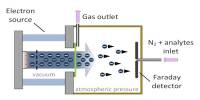If you follow the global AI competition closely, you’d believe there are just two countries competing for supremacy. However, China and the United States are far from the only technological countries with well-developed startup and incumbent cohorts, active venture capital, and capital markets capable of turning early-stage ideas into publicly-traded enterprises. The AI rivalry is part of a bigger deep technological competition that includes chip manufacturing, which is another hot topic between the US and China. Many countries are banking on deep tech, which is defined by The Exchange as investment in complicated technology that may not have immediate commercial value or is focused on establishing the framework for other, more market-friendly goods.
We’re interested in seeing if Europe can establish a third, independent center or group of centers for deep tech investment, IP creation, and firm formation that is distinct from China and the US. The question will be tackled in two parts: We’re looking at a report from Angular Ventures on VC investment in enterprise and deep tech in Europe and Israel today. Then, early next week, we’ll gather feedback on the topic from renowned European investors and founders to gain a deeper understanding of the situation on the ground.
To begin, a few warnings. Data from Israel, a vibrant deep tech market, is included in the Angular Ventures report. And the venture capital firm’s proposal includes some business investment (SaaS, fintech, e-commerce, and so forth). So we’ll have to parse some data, but no data set is flawless, and what Angular provided is quite beneficial. The first piece of information we need to think about is focus. Venture capital activity is divided into two buckets by Angular, which is useful for general comparisons. When looking at the European venture capital industry from the standpoint of enterprise and deep tech against consumer, data show that the continent’s investment focus has shifted dramatically from balance to a preponderance of non-consumer work.
For example, from 2014 to 2017, the two major categories were almost equal, accounting for around half of all venture activity in Europe. However, from 2018 to current, the split has flipped to around two-thirds/one-third, with European deep tech and enterprise investment accounting for the majority of transaction volume. That recent and significant shift in venture capitalists’ attention to Europe helps to illustrate why our question isn’t frivolous. Europe has progressed from a market that was fairly evenly split between consumer and non-consumer investments to one that favors back-end technology over consumer-facing items.
















